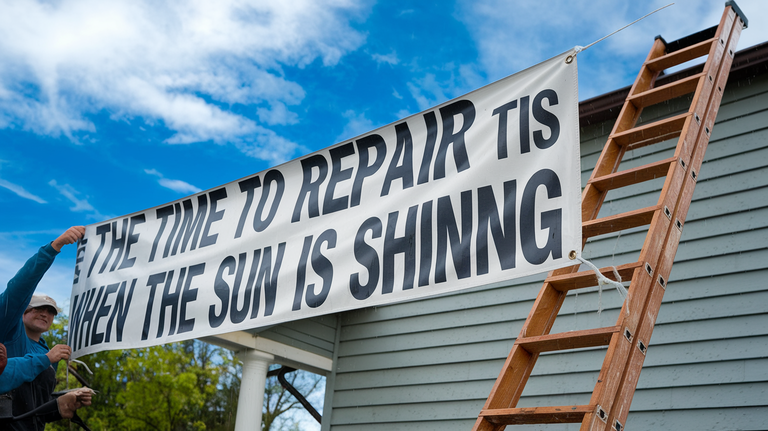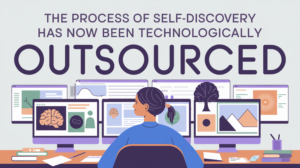This famous quote, attributed to former U.S. President John F. Kennedy, carries a timeless lesson. It suggests that the best time to prepare for difficult times is when things are going well. Just as one wouldn’t wait for a storm to fix a leaky roof, we shouldn’t wait for problems to occur before addressing them. Planning ahead, making improvements, and ensuring stability during periods of calm are essential for weathering the inevitable storms of life. This essay explores how this wisdom applies to various aspects of life, including personal development, finances, governance, and society at large.
Introduction
In life, it is easy to become complacent when things are going smoothly. However, history and experience teach us that challenges and crises can arise unexpectedly. Whether it is in personal life, financial stability, or the running of a government, the time to make improvements and prepare for the future is during periods of peace and prosperity. By examining this principle through various lenses, we can appreciate the importance of foresight, preparation, and proactive decision-making in our daily lives.
Personal Development and Growth
In the context of personal growth, “repairing the roof when the sun is shining” means focusing on self-improvement when life is stable. Often, people only consider change or improvement when they face challenges or failures. For instance, a student may neglect studying until they perform poorly in exams, or someone may ignore their health until they experience illness. However, waiting until a crisis strikes makes it harder to achieve success.
When things are going well, individuals should take the opportunity to build skills, learn new things, and reflect on their goals. This proactive approach makes handling challenges easier. A student who consistently prepares for exams, even when there is no immediate pressure, performs better when the time comes. Similarly, an individual who maintains a healthy lifestyle during good times is better equipped to recover when illness strikes. Personal growth is not about reacting to problems but about continuous improvement.
Financial Planning and Stability
One of the most obvious applications of this saying is in the realm of financial planning. When the economy is thriving, and individuals or governments are experiencing prosperity, it is the perfect time to save and invest for the future. Unfortunately, many people only start thinking about saving money or creating financial security when a downturn occurs. This can lead to panic and poor decision-making during times of economic difficulty.
During times of financial abundance, individuals should focus on building an emergency fund, investing wisely, and reducing unnecessary expenses. Just like a well-maintained roof keeps out the rain, a strong financial foundation protects people during tough times. For example, setting aside savings while one is employed ensures financial stability in the event of job loss. Similarly, businesses should diversify and reinvest profits during prosperous periods, rather than waiting for a crisis to scramble for solutions.
Governments, too, can learn from this principle. When tax revenues are high, instead of increasing spending on non-essential projects, it is wiser to invest in infrastructure, education, and healthcare, which will serve society well in times of crisis. The 2008 financial crisis, for example, highlighted how governments that had not prepared adequately during good times struggled to provide relief and support when the global economy collapsed. The key to financial security lies in preparing well before a crisis strikes.
Governance and Policy
For governments and organizations, the wisdom of “repairing the roof when the sun is shining” means investing in systems and policies that prevent crises before they arise. Reactive governance — where policies are only made after a problem has already occurred — often leads to rushed decisions, inefficiencies, and public dissatisfaction. In contrast, proactive governance ensures that systems are in place to handle unexpected events.
For example, disaster preparedness is one area where this wisdom is evident. Countries that invest in infrastructure, emergency services, and public awareness during peaceful times are better able to respond to natural disasters like floods, earthquakes, or pandemics. During the COVID-19 pandemic, nations that had robust healthcare systems, ample emergency supplies, and prepared policies were able to manage the crisis more effectively than those who did not invest in their healthcare systems during good times.
Furthermore, governments should focus on social welfare, education, and employment policies during periods of economic growth. When the economy is strong, programs that provide education and job training help citizens become more resilient. This ensures that, when a recession hits, people have the skills and resources to bounce back. Preventative governance, like regular maintenance on a roof, ensures that society can weather future storms without collapsing.
Business and Innovation
In the business world, many companies fail because they only innovate or restructure when faced with a crisis. Successful businesses, on the other hand, continuously evolve, improve their processes, and invest in new technologies, even when profits are high. This proactive approach allows businesses to stay ahead of the competition and adapt quickly to changing market conditions.
Businesses that only look inward during times of crisis may struggle to catch up once the market shifts. For instance, many brick-and-mortar stores did not fully invest in e-commerce until the COVID-19 pandemic forced them to. By then, it was often too late, and many companies struggled to stay afloat. In contrast, companies that had already embraced digital transformation were able to pivot smoothly and continue operations, even during lockdowns.
The lesson for businesses is clear: the time to innovate, improve customer service, and optimize operations is when the company is doing well, not when it is already facing financial difficulty. Continuous investment in technology, employee training, and customer satisfaction ensures long-term success.
Health and Well-being
The principle of repairing the roof while the sun is shining is particularly relevant when it comes to health. Many people only begin to prioritize their health after a problem arises. For instance, individuals may ignore a healthy diet or regular exercise until they are diagnosed with a health condition. However, addressing health issues before they become serious is much easier and more effective than trying to recover from an illness.
Preventative healthcare, such as regular check-ups, a balanced diet, exercise, and stress management, ensures that individuals are better prepared to handle health challenges as they age. The human body, like a roof, needs regular maintenance to function well over time. Neglecting health in times of well-being may lead to more serious issues down the line, which could have been easily avoided with early care.
Public health initiatives also follow this principle. Governments and healthcare institutions must invest in preventative measures such as vaccination programs, health education, and disease surveillance systems during normal times. These efforts create a healthy population that is better equipped to deal with potential health crises. The ongoing COVID-19 pandemic has shown the importance of early intervention and preparedness.
Education and Skill Development
Education is another area where this principle is highly applicable. Students and professionals alike must continuously upgrade their skills, even when they feel secure in their current situation. The world is rapidly changing, and technology is advancing at an unprecedented rate. If individuals wait until their skills are outdated to start learning something new, they may find themselves struggling to catch up.
Continuous learning during periods of stability ensures that individuals are prepared for changes in their industries. For example, professionals who invested in learning digital skills before the rise of the digital economy were better positioned for success. On the other hand, those who waited until digitalization became mainstream faced significant challenges in adapting to new work environments.
Read More: A Ship in Harbour is Safe, But That is Not What Ship is For
Conclusion
The saying “the time to repair the roof is when the sun is shining” carries a deep and practical truth. Whether in personal life, finance, governance, health, or education, the best time to prepare for challenges is during times of stability. Proactive actions, taken when things are going well, ensure that individuals, businesses, and governments can weather the storms of life when they inevitably arise.
By continuously improving, investing, and planning ahead, we ensure that when adversity strikes, we are not caught unprepared. Just as a well-maintained roof shields us from rain, a well-prepared life protects us from the inevitable challenges that come our way. The wisdom of this quote lies in its reminder to be forward-thinking and proactive in all areas of life.







